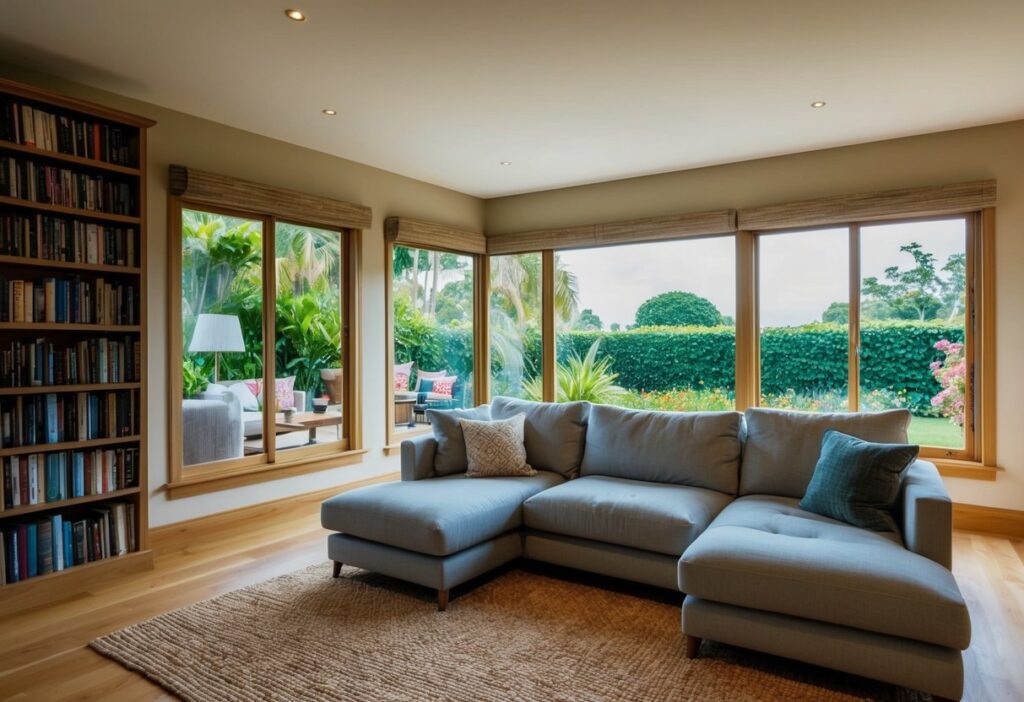Is It Better to Buy or Rent a House in the UK? This is a big decision and depends on personal and financial situations. For many, buying a house in the UK seems more cost-effective in the long run, as it can build equity and provide stability. Yet, renting offers flexibility and can be less financially straining upfront.

In the UK, the housing market has significant variations across regions, which can influence the decision. High property prices in some areas make renting more appealing, especially if one is not planning to stay long-term. On the other hand, buyers may find opportunities in cities where property values are expected to rise.
A key factor is financial wellbeing. Buying a house involves a substantial initial investment, including deposits and other costs. Renting, however, might offer more manageable monthly payments, avoiding the large commitments tied to property ownership. Both choices have advantages that cater to different lifestyles and goals.
Key Takeaways
- Buying can build equity and stability.
- Renting offers flexibility and lower initial costs.
- Decision depends on financial situation and market conditions.
Analysis of the UK Housing Market

The UK housing market has a complex history and varies by region. To understand its current state, it’s important to consider historical trends, recent conditions, and regional differences.
Historical Market Trends
Over the past few decades, UK housing prices have generally increased. Major factors include economic growth, low interest rates, and limited housing supply. These trends have repeatedly driven prices upward. In the late 20th century, home prices surged, leading to increased property ownership.
The 2008 financial crisis caused a temporary dip in prices. Following this, the market rebounded strongly. In recent times, factors such as Brexit and the COVID-19 pandemic have introduced uncertainty, affecting buying and renting dynamics. Long-term trends indicate a persistent rise in house values driven by demand and limited supply.
Current Market Conditions
As of now, the UK housing market is marked by high demand and limited supply. Interest rates, which affect mortgage costs, remain a key factor. Recently, rates have risen, impacting many buyers’ choices.
House prices continue to climb, influenced by factors such as urbanisation and changing work patterns post-pandemic. The government’s Help to Buy scheme has also bolstered demand by making it easier for first-time buyers to enter the market. Despite high prices, people continue to seek property, driven by low supply.
Regional Variations
In the UK, housing market conditions differ considerably across regions. London’s property market often stands out, with high prices and significant demand. In contrast, areas in the North offer more affordable options.
Wales and Scotland have distinct markets, influenced by local economic conditions and policy decisions. Urban areas tend to have limited availability and high demand, while rural regions may offer more options at lower prices. These variations affect decisions around buying versus renting, depending on location.
Advantages of Buying a House

Buying a house in the UK can be a beneficial decision for many. It offers financial growth, a sense of security, and greater freedoms relating to personalisation and control of one’s living space. Each of these aspects brings unique advantages to homeowners.
Financial Investment and Equity
Purchasing a house allows individuals to build equity. As mortgage payments are made, the owner increases their stake in the property, unlike rent, which offers no return. Over time, the value of a home often increases, contributing to the owner’s net worth.
Owning property can also provide more stability. Mortgage payments may remain fixed, unlike rent, which can increase. Moreover, owning a home can offer certain tax advantages, which vary based on individual circumstances.
Stability and Security
Buying a home delivers a level of stability not typically found in renting. Homeowners aren’t subject to lease agreements that change frequently, giving them the ability to plan for the long term without fearing sudden moves. There is also security in knowing that the home is solely theirs.
Community ties can form more strongly when living in one place over time. Such connections can enhance the sense of belonging and contribute to a more stable lifestyle. Families especially benefit from not needing to change schools frequently.
Creative Freedom in Homeownership
Homeownership allows individuals to modify their space to fit their preferences. Walls can be painted, gardens can be landscaped, and interiors designed to reflect personal style. The freedom to renovate and make changes enhances the experience of living in one’s own property.
Such creative freedom is typically absent in rental agreements, where tenants face limitations on making alterations. This control over their environment can lead to a more satisfying and comfortable home life.
Advantages of Renting a Property

Renting offers flexibility, fewer maintenance responsibilities, and protection against housing market changes. These factors make it an appealing choice for many people who prefer to keep their options open.
Flexibility and Mobility
Renters enjoy a great deal of flexibility. They can move to a different area, city, or even country with ease because they are not tied down by property ownership. This is particularly valuable for those whose jobs require frequent location changes or for individuals who simply enjoy the freedom to explore different places every few years. The ability to change living environments also means renters can adjust their living situation to suit changes in lifestyle, family size, or personal preferences. When it’s time to relocate, giving notice and packing up are usually all that’s required, making the process less burdensome compared to selling a house.
Minimal Responsibility for Maintenance
Renters often enjoy fewer responsibilities when it comes to repairs and upkeep. Typically, the landlord or property management team is responsible for handling maintenance issues, from minor repairs to major renovations. This can save renters both time and money. For example:
- Fixing broken appliances
- Addressing plumbing issues
- Managing structural repairs
This arrangement allows tenants more freedom to focus on their personal and professional lives without the worry of unexpected repair costs. Additionally, there’s no need to set aside a budget for future maintenance, as these are usually covered by the landlord.
No Exposure to Property Market Fluctuations
Renters are protected from the volatility of the property market. When property values drop or housing bubbles burst, homeowners can experience significant financial stress. In contrast, tenants enjoy stability as their primary financial concern is the rent, which typically has less fluctuation compared to property prices. This predictability can be appealing for budget-conscious individuals or those with fixed incomes. Renters are also shielded from the complexities of property transactions, such as purchasing or selling a home during unfavourable market conditions. By avoiding the ebbs and flows of the housing market, renting can offer a sense of financial security.
Financial Considerations and Calculations

When deciding between buying or renting a house in the UK, various financial factors play a crucial role. Understanding these factors involves examining the immediate and long-term financial impact of each option.
Cost-Benefit Analysis
Buying a house typically requires a large deposit and additional costs like stamp duty and legal fees. Renters, on the other hand, usually pay a security deposit and monthly rent.
To understand which option is more financially viable, one should consider the monthly costs of mortgage repayments compared to rent. Mortgage payments might be higher than rent at first, but they build equity over time. It’s important to factor in property maintenance and repairs when buying. Renters may not need to worry about these expenses, making renting seem cheaper initially.
Long-Term Financial Projections
Homeownership can be a long-term investment. Housing prices in the UK tend to rise over time, potentially increasing the value of the property. However, market fluctuations mean the house value can also decrease.
Renting offers flexibility without commitment to a long-term investment. Renters can move without worrying about selling a property, but they don’t benefit from the potential rise in property value.
Over a long period, buyers may save money through property appreciation, whereas renters may face increasing rental prices.
Mortgage Versus Renting Comparisons
Mortgages come with fixed or variable interest rates. A fixed-rate mortgage provides stability with consistent payments, while variable rates might fluctuate. Rent rates, however, can increase with inflation or changes in the housing market.
Mortgage Comparison Table
| Factor | Mortgage | Renting |
|---|---|---|
| Initial Costs | High (deposit, fees) | Low (deposit only) |
| Building Equity | Yes | No |
| Flexibility | Low | High |
| Long-Term Costs | Lower if property appreciates | May increase |
Ultimately, comparing mortgage and renting expenses will highlight differing financial outcomes. While buying can be cost-effective over time, renting offers short-term flexibility.